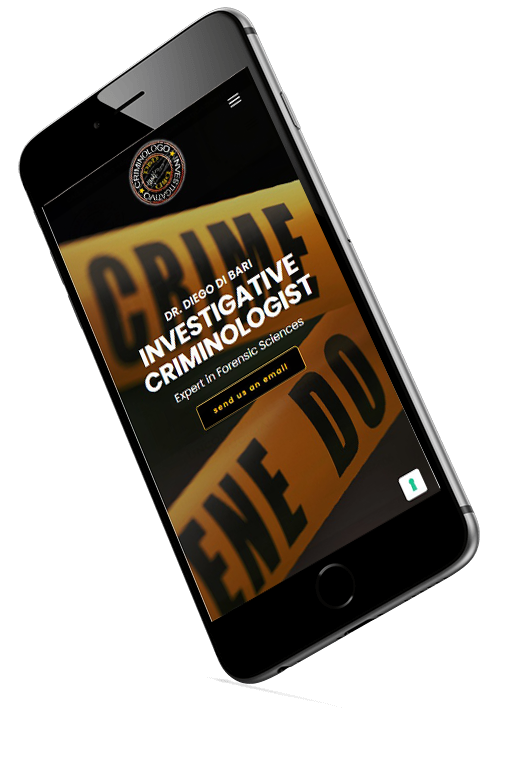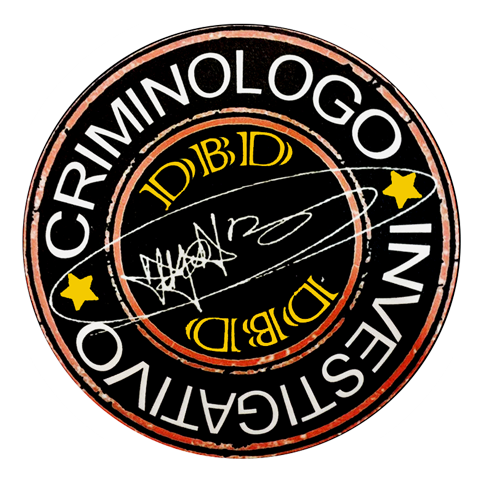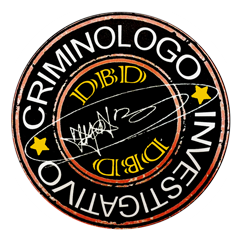DR. DIEGO DI BARI
The professional competence of the Criminologist for Investigation and Security is based on specific techniques and methodologies of a multidisciplinary and interdisciplinary nature based on: the study of the investigation technique and the collection of information; the study of the perpetrators, the victims, the methods of carrying out the crime, the criminal conduct, the possible forms of prevention and control, the observation and re-education of deviant or criminal subjects and their social reintegration; research and training in the field of methodology and references of private investigation and related protocols; on the subject of intelligence methodology and related protocols; the methodology of the defensive investigation and related protocols; research and training in the criminal and civil technical field in the fields of forensic computer science, forensic genetics, forensic ballistics, forensic identification, false documents, graphology, fingerprinting,
photographic and video comparison, telephony, data recovery, analysis of telephone records and telephone cells, environmental remediation, food safety, import product safety, forensic psychology, forensic medicine, road accidents, occupational accidents, abuse of alcohol and drugs; research and training in the fields of sociology, criminology, victimization and urban security; civil, criminal, commercial and cultural mediation; family mediation; social mediation and conflicts; to the study of juvenile deviance; studying the design for access to public and private funding calls; the study of urban security projects and the design of security services for public and private entities. In the aforementioned areas, the Criminologist carries out consultancy, planning, analysis and research activities in particular in the investigative, judicial, penitentiary, extrajudicial and psychosocial fields.
INVESTIGATIVE CRIMINOLOGIST
PRIVATE INVESTIGATIONS
Dr. Diego DI BARI Investigative Criminologist expert in Forensic Sciences. Profiler
send us an emailSERVICES
Dr Diego DI BARI, profiler, supports the investigation, limits the number of suspects and directs the investigations, suggests investigative strategies and studies any links between the crimes.
Read More

